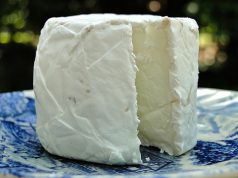Contents
Introduction to Olive Garden’s Grated Cheese
If you’ve ever been to an Olive Garden restaurant, you’re likely familiar with the delicious grated cheese that is sprinkled on top of your pasta dishes. This cheese, known as Pecorino Romano, is a key ingredient in many of Olive Garden’s most popular menu items.
So, how is Olive Garden’s grated cheese made? Pecorino Romano is a hard, salty cheese made from sheep’s milk that is aged for at least eight months. The cheese is then grated finely and used to top dishes like spaghetti, lasagna, and ravioli.
But what makes Olive Garden’s grated cheese so popular? For one, it has a rich, salty flavor that perfectly complements the restaurant’s hearty Italian dishes. Additionally, the grated cheese adds a satisfying texture to the pasta, giving each bite a delicious crunch.
Not only is Olive Garden’s grated cheese delicious, it’s also a great source of protein and calcium. So, next time you visit Olive Garden, be sure to ask for an extra sprinkle of their famous grated cheese on your dish.
Olive Garden’s Grated Cheese: How It’s Made and Why It’s So Popular
Introduction
One of the things that Olive Garden is most known for is their unlimited salad and breadsticks, but another famously beloved item on their menu is their grated cheese. This post will delve into how that cheese is made and why it’s so popular.
How It’s Made
Olive Garden’s grated cheese is a blend of three different cheeses: parmesan, romano, and asiago. According to the FAQs section of Olive Garden’s website, the cheese is grated fresh daily before it is served to customers.
It’s unknown whether Olive Garden mixes the cheeses together before they are grated or if they are grated separately and then blended. However, it’s clear that the cheese is a hit with restaurant-goers.
The Popularity of Grated Cheese
But why is Olive Garden’s grated cheese so popular? For starters, it’s an optional topping for pasta, soups, and salads, which means customers can add as little, or as much, as they want.
Second, the cheese is often served not just with pasta dishes, but also with Olive Garden’s famous breadsticks and salad. Many people have mentioned how they enjoy covering their salad or breadsticks with the cheese, giving them a salty and savory kick.
Additionally, the cheese is a hallmark of Olive Garden’s comfort food offerings. USA Today’s 10 Best notes, “when you’re in the mood for a big plate of pasta and red sauce, there’s nowhere like Olive Garden. And when you’re there, you’d better make sure they sprinkle that grated Parmesan all over it! It just wouldn’t be the same without it.”
Overall, the grated cheese is a seemingly simple, yet beloved aspect of the Olive Garden dining experience.
Conclusion
While Olive Garden’s grated cheese may not be the most complex or gourmet item on their menu, it’s one that is consistently enjoyed by customers. And, like many things that become staples in popular culture, the grated cheese has taken on a life of its own as an essential part of a meal at Olive Garden.
Sources
Image Source
Olive Garden’s Grated Cheese: FAQs
How is Olive Garden’s Grated Cheese Made?
Olive Garden’s grated cheese is made using a blend of Parmesan and Romano cheeses that are grated together. These cheeses are high-quality and imported from Italy. The cheese is grated fresh every day at each Olive Garden location using a special grater. This grater ensures that the cheese is finely grated and has the perfect texture.
Why is Olive Garden’s Grated Cheese So Popular?
Olive Garden’s grated cheese is popular for many reasons. One reason is the quality of the cheese. The Parmesan and Romano cheeses used in the blend are high-quality and imported from Italy, which gives the cheese a delicious taste. Another reason is the way the cheese is grated. The special grater used by Olive Garden grates the cheese into a very fine texture, which makes it easy to sprinkle on top of dishes. Finally, Olive Garden’s grated cheese is a signature item that is associated with the restaurant brand. It has become a beloved topping that customers enjoy sprinkling on top of their meals, adding a touch of flavor and sophistication to their meals.
Olive Garden Grated Cheese: A Delicious Addition to Your Meal
What is Olive Garden Grated Cheese?
Olive Garden Grated Cheese is a type of cheese that is finely shredded and commonly used as a topping or ingredient in various Italian dishes. Made from high-quality Parmesan cheese, it has a strong, rich flavor that adds depth and complexity to any dish.
How is Olive Garden Grated Cheese Made?
To make Olive Garden Grated Cheese, fresh Parmesan cheese is aged for several months to intensify its flavor. It is then grated into small, uniform shreds using special machines. This process ensures that the cheese is evenly grated and ready to use in various recipes.
Ways to Use Olive Garden Grated Cheese
Olive Garden Grated Cheese is a versatile ingredient that can be used in countless recipes. It pairs well with pasta dishes, salads, soups, and more. Some popular ways to use it include:
– Sprinkling it over pasta dishes like spaghetti, fettuccine Alfredo, or lasagna
– Mixing it into salad dressings to add a nutty, salty flavor
– Using it to top off soups like minestrone or tomato soup
– Adding it to homemade pizzas for a delicious, cheesy finish
Where to Buy Olive Garden Grated Cheese
Olive Garden Grated Cheese is available for purchase at most grocery stores and online retailers. It is typically sold in plastic containers or bags and can be found in the dairy or cheese section of the store. Additionally, some restaurants, including Olive Garden, use this type of cheese in their dishes.
If you’re interested in learning more about the history and different types of grated cheese, be sure to check out this Wikipedia page.
Olive Garden’s Grated Cheese: How It’s Made and Why It’s So Popular
How It’s Made:
- Grated from imported aged parmesan cheese
- Parmesan cheese is shredded, dried, and aged up to two years
- Grated cheese is packaged and shipped to Olive Garden restaurants
Why It’s So Popular:
- Enhances the flavor of pasta dishes, salads, and soups
- Adds a salty, savory taste to any dish
- Is a staple ingredient in many Italian-American dishes







































